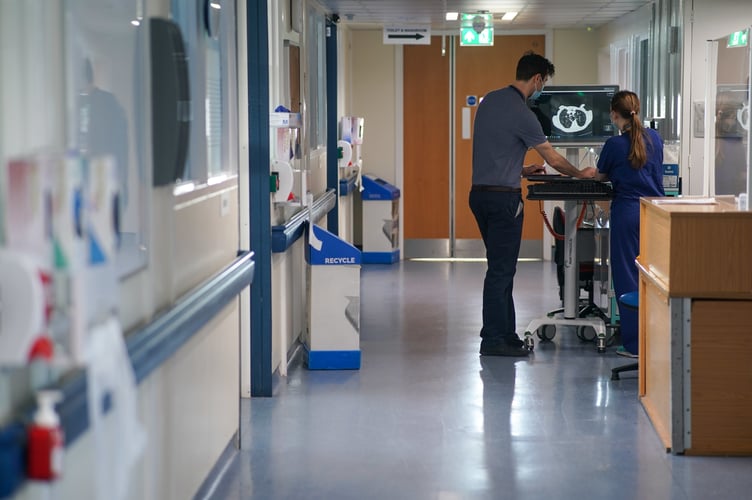Tens of thousands of patients were waiting for routine treatment at the Royal Devon University Healthcare Foundation Trust in February, figures show.
A health think tank warned it would take many years to get back to pre-pandemic levels at the current rate.
NHS England figures show 73,737 patients were waiting for non-urgent elective operations or treatment at Royal Devon University Healthcare NHS Foundation Trust at the end of February – down from 74,491 in January, and 79,789 in February 2023.
Of those, 4,072 (6%) had been waiting for longer than a year.
The median waiting time from referral at an NHS Trust to treatment at the Royal Devon University Healthcare Foundation Trust was 16 weeks at the end of February – the same as in January.
Nationally, 7.5 million people were waiting to start treatment at the end of February. This was down slightly from January and the fifth consecutive fall.
Nuffield Trust researcher Cyril Lobont said it is a small decrease when considered against the total, but it does represent welcome progress.
He said: “At the current rate it would take many years just to get back to pre-pandemic levels, let alone reverse the rising waiting times that we have seen over the last decade.
“While the total number waiting for key diagnostic tests remains static, there has been some progress on reducing the number of patients who have been waiting the longest.
“The latest data shows the smallest proportion of people waiting over five weeks for a diagnostic test since the pandemic, but this is still nowhere near pre-pandemic proportions.”
Separate figures show 1.6 million patients in England were waiting for a key diagnostic test in February – the same as in January.
At the Royal Devon University Healthcare Foundation Trust, 15,931 patients were waiting for one of 14 standard tests, such as an MRI scan, non-obstetric ultrasound or gastroscopy at this time.
Of them, 5,168 (32%) had been waiting for at least six weeks.
Other figures show cancer patients at the Royal Devon University Healthcare Foundation Trust are not being seen quickly enough.
The NHS states 85% of cancer patients with an urgent referral should start treatment within 62 days.
But NHS England data shows just 65% of cancer patients urgently referred to the Royal Devon University Healthcare Foundation Trust in February began treatment within two months of their referral.
That was up from both 59% in January, but up from 56% in February 2023.
Professor Pat Price, co-founder of the #CatchUpWithCancer campaign, said: “This data is a heartbreaking reminder that the cancer crisis is not being recognised as the deadly threat that it is. There is a worrying trend of decline for cancer patients.
“What makes this frustration intolerable is when ministers and NHS leaders seem to suggest that everything is in hand because we are diagnosing more cancer patients.
“But what good is a cancer diagnosis if we don’t treat the patients on time?”
He added without a greater priority on treatment, diagnosed patients pile up on record waiting lists and called for a cancer plan backed by investment.
Prime Minister Rishi Sunak said a drop of almost 200,000 waiting for routine treatment in the last five months “shows what the NHS can do for patients”.
“Had there been no strike action, an extra 430,000 patients could have been treated. We still have more work to do, but our plan is working,” he added.



.jpeg?width=209&height=140&crop=209:145,smart&quality=75)
